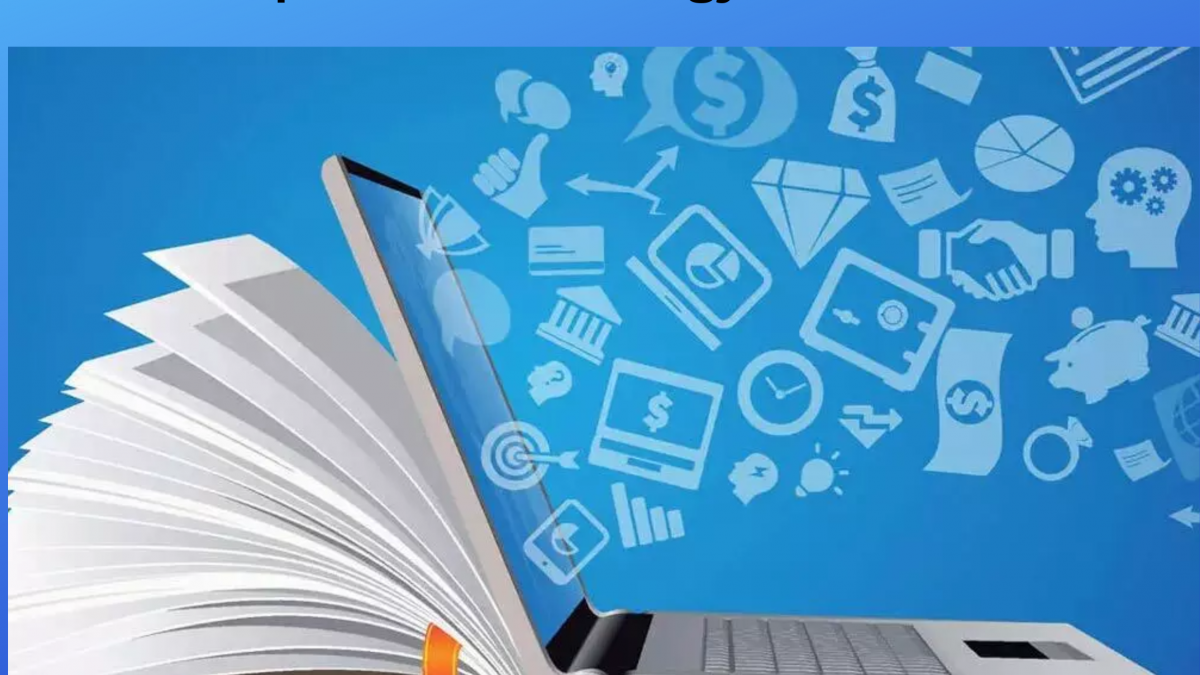In the fast-paced landscape of modern education, technology has become an integral part, transforming traditional teaching methods and learning experiences. Let’s delve into the various ways technology has significantly impacted education in recent years.
Evolution of Classroom Technology
Smartboards and Interactive Displays
In the not-so-distant past, chalkboards ruled the classroom. Today, smartboards and interactive displays have revolutionized teaching, providing dynamic and engaging visuals that cater to diverse learning styles.
Online Learning Platforms
The rise of online learning platforms has democratized education, breaking geographical barriers and offering a plethora of courses. Learners can now access high-quality content from the comfort of their homes.
Personalized Learning
Adaptive Learning Systems
Technology has ushered in adaptive learning systems that tailor educational content based on individual progress and understanding. This personalized approach ensures that students grasp concepts at their own pace.
Customized Learning Paths
Students now have the flexibility to choose their learning paths. Technology facilitates the creation of customized curriculum tracks, allowing for a more personalized and effective educational journey.
Accessibility and Inclusivity
Assistive Technologies
In the realm of education, technology has become a powerful tool for inclusivity. Assistive technologies cater to students with diverse needs, ensuring that everyone has equal access to educational resources.
Remote Learning Benefits
The recent surge in remote learning, driven by technological advancements, has opened up new possibilities. Students from various corners of the world can participate in classes, fostering a global community of learners.
Collaborative Learning Platforms
Virtual Classrooms
Virtual classrooms have redefined the traditional concept of a physical classroom. They facilitate real-time interactions, discussions, and collaborative projects, bringing students together irrespective of their physical locations.
Group Project Tools
Technological tools for group projects enhance collaboration. Students can collaborate seamlessly, sharing ideas and working together on assignments, fostering teamwork and communication skills.
Real-world Applications of Learning
Simulations and Virtual Labs
Technology enables the creation of realistic simulations and virtual labs, providing students with hands-on experiences in various fields. This bridges the gap between theoretical knowledge and practical application.
Industry-specific Software
Incorporating industry-specific software into education prepares students for the workforce. They gain practical skills using tools relevant to their chosen fields.
Impact of Artificial Intelligence
AI-powered Learning Tools
Artificial Intelligence (AI) is a game-changer in education. AI-powered tools analyze student performance data, offering insights to educators and enabling personalized feedback.
Intelligent Tutoring Systems
Intelligent tutoring systems use AI algorithms to adapt to individual learning styles, providing targeted assistance and enhancing the overall learning experience.
Gamification in Education
Educational Games and Their Benefits
Gamification makes learning enjoyable. Educational games not only engage students but also enhance their problem-solving and critical-thinking skills.
Increased Engagement
By incorporating gamification elements, educators can increase student engagement, making the learning process more enjoyable and effective.
Mobile Learning
Learning On-the-Go
Mobile learning has transformed education into a portable experience. Students can access educational content anytime, anywhere, fostering a culture of continuous learning.
Mobile Apps and Educational Resources
A plethora of educational apps and resources are available on mobile devices, offering interactive learning experiences and making education more accessible.
Challenges and Concerns
Privacy and Security Issues
The integration of technology in education brings concerns about data privacy and security. Safeguarding sensitive information is crucial to maintaining a trustworthy learning environment.
Technological Disparities
Not all students have equal access to technology, creating a digital divide. Bridging this gap requires addressing disparities in hardware, internet access, and digital literacy.
Future Trends in Educational Technology
Augmented and Virtual Reality
The future of education lies in augmented and virtual reality. These technologies will provide immersive learning experiences, making abstract concepts tangible.
Blockchain in Education
Blockchain technology can revolutionize credential verification and academic records, ensuring transparency and authenticity.
Case Studies
Successful Implementations
Explore real-life examples of successful technology implementations in education. Understand the positive impact on student outcomes and institutional efficiency.
Lessons Learned
Examine challenges faced during implementation and the valuable lessons learned, providing insights for future endeavors.
Expert Opinions
Interviews with Educators and Technologists
Gain insights from experts in the field. Explore their perspectives on the current state of educational technology and its future implications.
Student Perspectives
Surveys and Testimonials
Understand how students perceive technology in education. Surveys and testimonials offer valuable feedback on the effectiveness of technological integration.
How Students Perceive Tech in Education
Delve into the student experience, exploring their thoughts on the benefits and challenges of technology in education
